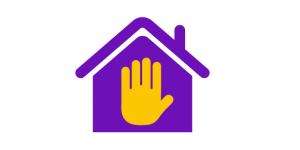6,000 allegations of harm by adults from children in institutional settings over three years

Published by Professional Social Work magazine, 16 December, 2021
Research by children’s rights charity Article 39 reveals more than 6,000 allegations of harm were made against adults working in children’s institutional settings in England between 2018-2021.
And the greatest number of allegations came from the prison sector and children’s homes.
The research, undertaken via freedom of information requests sent to local authorities, uncovered allegations across boarding and residential schools, children’s homes, immigration detention centres, mental health inpatient units and young offenders’ institutions.
In October, Article 39 called for a government inquiry into the alleged abuse and human rights violations of children living in G4S-run Oakhill secure training centre, after being contacted by a social work whistleblower.
After notifying the relevant authorities, inspectors returned to Oakhill in early October and issued an urgent notification stating that children had been subject to unlawful use of force and that conditions “barely met minimum standards of human decency”.
Child protection concerns had been investigated internally by G4S, rather than referred to the local authority as required by statutory safeguarding guidance.
Article 39 undertook the latest study, published today, to find out the extent of allegations of abuse against children and what action was being taken by local authorities as a result.
They discovered 64 local authorities recorded 6,106 allegations between 2018 and 2021, an average of 32 allegations per year per local authority.
Child prisons had the greatest number of allegations with 1,305 allegations made over three years in just five institutions. Last year, one local authority received 184 allegations against staff in one secure training centre.
The greatest number of institutional allegations related to adults working in children’s homes (2,900 allegations over three years). Of these, 332 were in the semi-independent/independent living sector.
Of the local authorities which provided the relevant information, only eleven per cent of abuse allegations led to child protection enquiries under the Children Act 1989.
The report authors state: “Several local authorities explicitly stated that they do not collect data on abuse allegations in semi-independent/independent accommodation, or in mental health inpatient care.
“There is no central collection and publication of data. And yet, there is an abundance of evidence showing the perils of placing children in care in properties where they receive no care and go without consistent adult supervision.
“Between 2018 and 2020, 22 children in care aged 16 and 17 died while living in properties where they were receiving no care and no, or limited, adult supervision."
Statutory guidance on safeguarding children is, the charity says, predominantly concerned with abuse and neglect within the family, even though some 90,000 children in England live in institutional settings. Most of these are boarding schools.
Guidance does not explicitly outline how allegations of significant harm made by (or in respect of) children living in institutional settings should be addressed.
Kamena Dorling, Article 39’s head of policy and advocacy, said: “Children in closed institutions often have limited or no contact with family members, and it is vital that there is sufficient oversight of how they are treated.
“Yet, Article 39’s research has found that there is still no uniform process for local authorities recording and reporting data on institutional abuse and neglect allegations and outcomes. Without this, it is impossible to gather the vital local intelligence needed about individual establishments to ensure the safety of children living there.”
The organisation is calling on the Department for Education to routinely collect and publish data on abuse allegations and outcomes and for cross-departmental statutory guidance on keeping children safe in all institutional settings to be drafted as a matter of urgency.
The report is Article 39’s second examination of abuse and neglect allegations in institutional settings in England. The first report was published in November 2017.
Find out more about the charity’s work here
METHODOLOGY
A freedom of information (FOI) request was sent to every local authority with a children’s services department asking for the number of allegations against adults working in different institutional settings for each of the financial years from 2018 to 2021.
They were broken down by type of abuse or neglect: child sexual exploitation, emotional abuse, neglect, physical abuse, sexual abuse and other.
Article 39 asked how many allegations led to section 47 enquiries and what were the outcomes of those enquiries. A total of 152 local authorities were contacted for information, of which 120 responded.
- Only 16 local authorities (12 per cent) provided data on whether allegations resulted in child protection enquiries
- Only 56 per cent (67) provided some or all of the data requested
- Around 27 per cent (33) refused to provide data on the grounds of section 12 or section 40 of the Freedom of Information Act
- 17 per cent (21) provided a form of data but not broken down in the way requested
Article 39 carried out the same research in 2017, receiving usable data from 53 local authorities.
